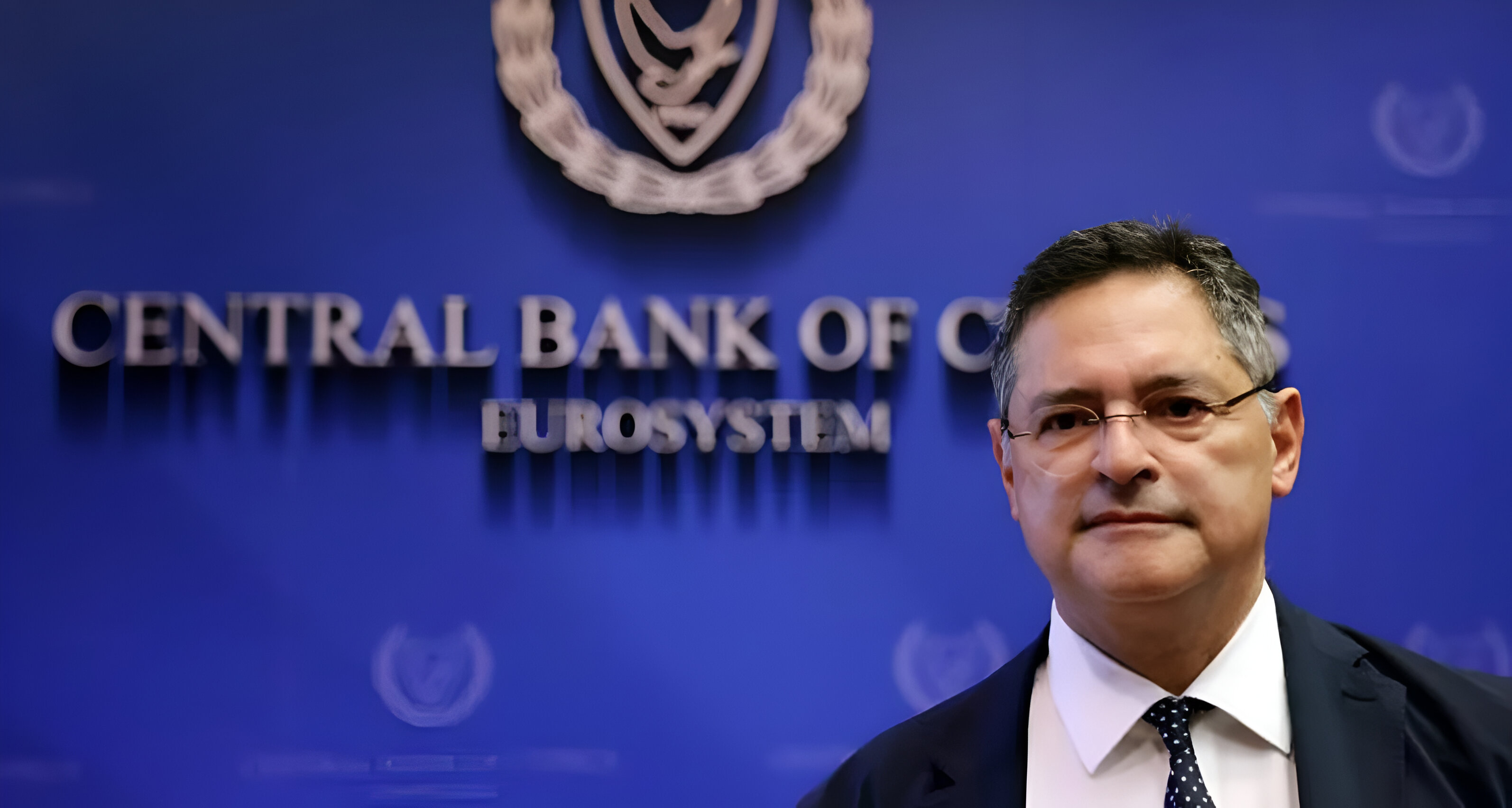Cyprus urged to strengthen resilience of key services industries
Central Bank of Cyprus (CBC) governor Christodoulos Patsalides has warned that the United States’ decision to impose high tariffs on imports globally is exacerbating international economic uncertainty, with potential medium-term consequences for Cyprus.
In an interview with Philenews, Patsalides said that “the Global Uncertainty Indices have surged to levels higher even than those recorded during the pandemic.”
He pointed out that this environment is increasing the likelihood of deviations from the central bank’s baseline macroeconomic scenario for both the eurozone and Cyprus.
While Cyprus currently faces limited direct impact due to the low volume of goods trade with the US, Patsalides cautioned that secondary effects could emerge.
“There may be consequences for Cypriot exports of goods and services due to reduced economic activity among our trading partners,” he explained.
These effects could escalate further if tariffs or retaliatory measures extend into the services sector, a crucial component of the Cypriot economy.
Patsalides stressed that tariffs run counter to free trade principles and are “inflationary from the supply side, increasing prices through higher costs of imported products and raw materials”.
They also depress economic activity and employment in targeted countries by reducing demand for their exports.
“On the demand side, disposable income falls, confidence is suppressed, and consumer and investment activity are dampened,” he said, underlining that the imposition of tariffs brings “negative outcomes for all parties involved”.
It should be noted that the CBC incorporated the evolving risks into its March 2025 macroeconomic forecasts.
However, with preparations for the Eurosystem’s June 2025 projections already underway, the governor acknowledged that “this constantly growing uncertainty complicates this work.”
On the domestic front, Patsalides said the state must closely examine the issue of inelastic public spending, particularly as revenues decline in times of recession.
“It is also essential to intensify the effective utilisation of all available financing tools, such as European funds like the Recovery and Resilience Facility, and partnerships with international organisations,” he said.
The goal is to safeguard economic resilience and ensure that key sectors such as tourism, industry, and services can be supported if needed.
Moreover, he stressed the importance of continuing Cyprus’ prudent fiscal policy, which has led to significant benefits for the country and recognition from major credit rating agencies now placing the Republic’s credit rating in the “A” category.
“Further reduction of public debt in times of uncertainty is a safeguard for the state’s ability to weather shocks,” he said.
Reflecting on his first year as CBC governor, Patsalides highlighted a sweeping modernisation effort to transform the CBC into a flexible and responsive institution.
“We have already developed a new organisational chart that was implemented in February 2025, aimed at enabling the CBC to function effectively as a modern central bank of the Eurosystem,” he said.
He underlined the importance of active participation in Eurosystem activities, which brings technical expertise and allows Cypriot officials to contribute to policy recommendations submitted to the European Central Bank’s governing council.
The reorganisation also introduced new operational goals supported by specific timelines and action plans.
Supervisory functions have been a key focus, according to the governor. He mentioned that the CBC has strengthened oversight across all areas.
These include credit institutions, credit acquiring companies, electronic money institutions, and payment institutions.
In addition, an external review of the electronic money and payments sector was conducted, leading to a tailored strategy for enhancing supervision in this area.
What is more, a new compliance enforcement unit was also created, aiming to instil a stronger culture of compliance among supervised entities and ensure consistency in CBC decisions.
Patsalides also pointed to the establishment of a Centre of Excellence for the supervision of technological risks, addressing the increasing need for digital resilience in the financial sector.
Financial conduct and consumer trust have also been prioritised.
“We have given particular emphasis to upgrading the field of financial conduct, with the aim of launching initiatives that benefit the public and strengthen confidence in the financial system,” he said.
He also mentioned that anti-money laundering supervision has also been enhanced.
Strategic thematic groups have been formed to address issues such as crypto-assets and climate-related risks, further aligning Cyprus with broader supervisory developments in the EU.
“Many of these initiatives fall under our active participation in the Single Supervisory Mechanism (SSM), of which the CBC is an integral part,” he said.
The SSM has significantly bolstered the stability and resilience of the Cypriot banking system.
Patsalides also referenced Cyprus’ more engaged role in the European Systemic Risk Board, where the CBC acts as a macroprudential authority.
“The goal is early identification and management of systemic risks in the financial sector, and the activation of tools to enhance resilience,” he said.
He explained that the CBC monitors the entire financial system and has developed relevant methodologies and policies, while also acting as the national coordinator for financial stability and as the central point of contact for cyberattacks with systemic impacts.
Furthermore, the governor placed great emphasis on financial literacy, particularly for young people.
He highlighted the CBC’s recent international conference, “Financial Literacy for the Youth: Preparing the Next Generation,” and the creation of a new Centre for Research and Policy Production.
The centre, he explained, plays a key role in shaping and assessing policy, in collaboration with other Eurosystem central banks, academic institutions, and international bodies.
Patsalides also announced plans for a structured journalist briefing programme.
“We are convinced that meaningful and regular information sharing enhances transparency and accountability regarding the CBC’s mission and performance, and ultimately builds public trust,” he concluded.






Click here to change your cookie preferences